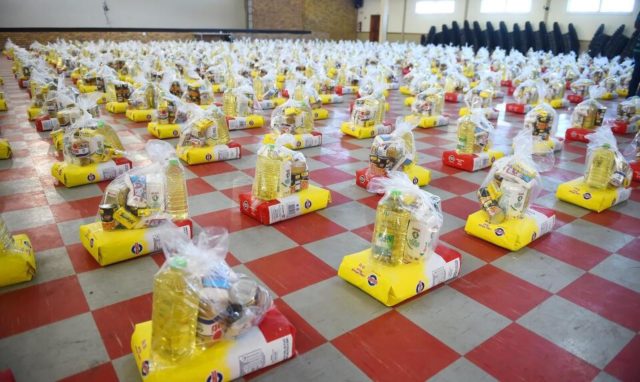Operation Hunger swamped with requests for assistance from desperate people
“I DON’T want money, just food and electricity. I am willing to work in exchange.”
This is one of the e-mails from desperate families that Operation Hunger receives every day from across the country.
In the e-mail, the man from the Northern Cape said he didn’t have money to buy food or electricity for his family of five because he couldn’t look for work during the lockdown.
The organisation’s interim chief executive, Sandy Bukula, said that since the national lockdown that aimed to stop the spread of Covid-19, the number of people calling them for help had increased exponentially.
“We are on a rescue mission,” Bukula said.
She said that on top of the 2.4 million individuals Operation Hunger assisted through soup kitchens a month, there had been an increase in the number of people who needed immediate relief.
“What has happened now during the lockdown is that we have had a huge increase coming from people who are not our normal beneficiaries.
“Usually we are able to identify our beneficiaries; that would be people who are unemployed or got retrenched. Now we are seeing a different category of beneficiaries who are coming through as new entrants during this lockdown.
“We have categorised and given them a name – the missing middle. This is because in a normal circumstance they would not qualify for government grants. These are people who are usually in temporary employment, on commission-based employment, they are your daily cash receivers, your self-employed people.
“These are people who can, outside the lockdown, actually sustain themselves. They can sustain themselves on a hand-to-mouth basis but they didn’t have money to save,” Bukula said.
She said that before the lockdown they would receive between 20 to 30 enquiries for help a day from people who needed food, but that had increased to between 150 and 200.
Bukula said the enquiries increased even more on weekends. This had been particularly hard because the organisation did not have enough donations to meet the demand.
She said that Operation Hunger usually supported communities in need of immediate help with soup kitchens, but that had been suspended because of the lockdown. Instead, they send food packs to indigent families.
In those communities, they also helped people start projects like gardens and sewing co-operatives to ensure they became self-sufficient. But since the lockdown even the people who had been self-sufficient needed immediate relief.
Jones Khumalo from the Mazibuko Mwelase Royal Kingdom Traditional Council in Orange Farm contacted Operation Hunger last week for assistance.
“The community came to us asking for help. We were so desperate because people have been turning us down. No one could help us,” Khumalo said.
On Monday, he went to the Operation Hunger offices in Edenvale to receive food parcels, but that was not enough.
Khumalo said: “There are so many people who want food in our community. We took 40 of the most serious cases to the organisation. We needed about 40 food hampers, but we only managed to receive 10.”
He said that because of this, they would only give the packs to families who were in dire need. “We will first give to families who have no income. Those who don’t have anyone receiving a government grant.”
Bukula said that after the lockdown, new and innovative policies should be implemented to assist communities.
“It cannot be a one-size-fits-all type of solution. We need to find innovative ways to enable people to be self-sustainable. For the longest time we have known the problems, but we haven’t been addressing them.
“There are many unemployed people but we have not calculated the number of people who work in the informal economy. We are now expecting at least about 370 000 people to be retrenched or be without employment post the coronavirus.
“We are looking again at the formal economy, we are not looking at the informal economy alone.”
Bukula said the country had ignored socio-economic disparities for too long: “We sat for the longest time as a country without actually doing something about this.
“We keep on working on fluff. This has actually awakened us to the actual issues.”








